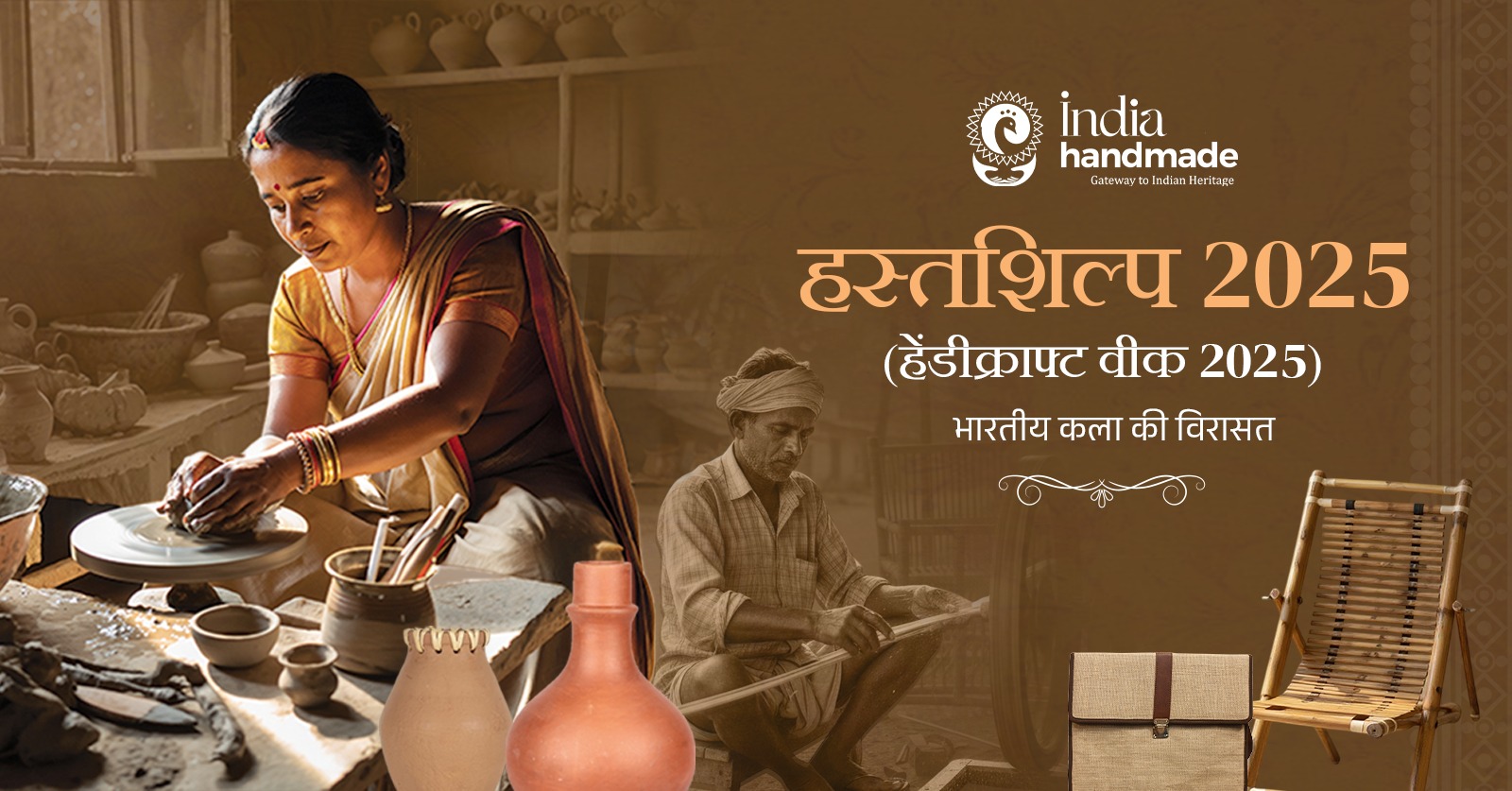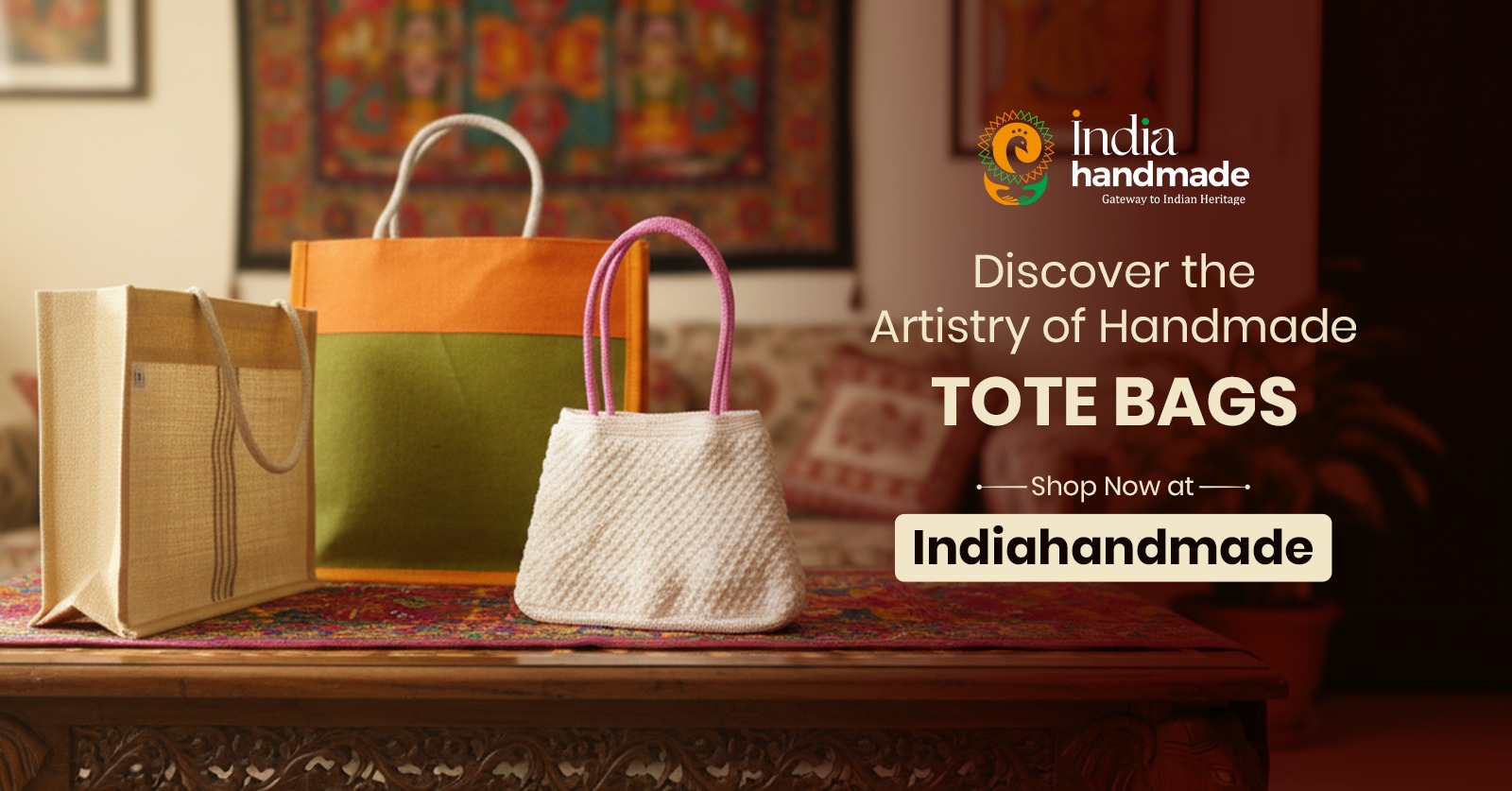
The joy of exchanging gifts permeates the air as homes throughout India become decked up in bright decorations in anticipation of the festival of lights. Traditional cuisine is starting to smell delicious in kitchens. Diwali, a holiday that represents the victory of good over evil and light over darkness, has always been a joyful occasion. But in recent years, the festival's opulence has occasionally come at the price of environmental sustainability. The good news is that people are becoming increasingly conscious of the impact their choices have on the environment and are seeking for methods to celebrate Diwali in an eco-friendlier manner.
Using handlooms and handcrafted goods is one of the most effective ways to support a sustainable Diwali. These goods not only lessen our carbon footprint but also help India's weavers and artisans preserve their rich cultural legacy, guaranteeing the survival of traditional crafts in the contemporary era. Here are some ideas for enhancing the significance and fond memories of your Diwali festivities while fostering a direct line of communication between makers and buyers: using sustainable handloom options.
Supporting India’s Artisan Community
India has a long history of handloom traditions and textile crafts, which differ from area to region. From the exquisite weaves of Varanasi’s Banarasi silk to the earthy tones of Andhra Pradesh’s Pochampally Ikat, each item tells a distinct tale. Choosing handloom textiles for Diwali is more than just purchasing a piece of cloth—you're taking part in a legacy that has been handed down through the ages.
Regretfully, weavers and craftspeople frequently find it difficult to receive the appreciation they merit. Due of their restricted access to larger marketplaces, they struggle to connect with potential customers and ultimately have to use middlemen to sell their goods at low costs. This is the context in which projects such as Indiahandmade.com are useful. Indiahandmade.com is an e-commerce portal run by the Ministry of Textiles, Government of India. Its goal is to close this gap by allowing artisans to show off their crafts to customers directly, cutting out the middlemen and guaranteeing that they are fairly compensated for their labor.
Sustainable Choices for a Green Diwali
Shopping during Diwali generally conjures up images of brand-new clothing, accessories for the home, and presents for close ones. Why not make these purchases more environmentally friendly and sustainable this year? Handloom textiles are an ideal eco-friendly substitute for synthetic materials. This is true whether the textile is a vivid cushion cover, a magnificent saree, or a skillfully woven shawl. When opposed to mass-produced goods, handcrafted things are typically made with traditional methods that need less energy and water.
By purchasing handloom goods, you may lessen the amount of dangerous chemicals that are discharged into the environment and support environmentally friendly techniques that honor the natural world and the artisans who create them. Products with a small environmental impact, such as those made of bamboo cloth, hand-spun Khadi, or organic cotton, decompose naturally.
Technology Empowering Artisans
Technology is changing the game for traditional craftspeople in the digital age. Technology is being used by websites such as Indiahandmade.com to empower weavers and artisans by giving them a way to reach a larger market and sell directly to customers. This raises the salaries of craftsmen while also enabling buyers to discover the backstory of each item they purchase, which fosters a greater appreciation for the art form.
Artists can now post videos of their weaving processes, exhibit their goods, and explain the inspiration behind their patterns through social media and online marketplaces. In turn, consumers are empowered to make knowledgeable choices and opt to purchase handmade, environmentally friendly goods that share their values.
For example, a large variety of products, including home decor items and clothes and accessories, are available on the Indiahandmade.com website. Every transaction performed on the platform helps to preserve India's traditional crafts and empower the artisans. Customers can become patrons of art and tradition, contributing to the upkeep of a community, and becoming a part of something bigger than just a business transaction.
Celebrating Tradition with a Modern Twist
It has always been customary to respect customs on Diwali. You may embrace the spirit of the event and still adhere to contemporary ideals of sustainability and mindful consumption by selecting handloom choices. Your Diwali festivities can be enhanced by handloom sarees, kurtas, dupattas, and even household textiles like table runners and cushion coverings. Handloom products are ideal for creating an exquisite and sustainable style statement because of their distinctive patterns, luxurious textures, and vivid colors.
In order to satisfy modern tastes while adhering to tradition, many weavers and craftspeople are currently experimenting with modern designs and techniques. The handloom industry will continue to be relevant and appealing to the younger generation because to this blending of the ancient and the new.
The Way Forward
Let's light up not only our houses this Diwali but also the lives of the numerous artists and weavers throughout the nation. Purchasing handloom products is an expression of support for regional craftsmen, sustainability, and tradition. Choosing to purchase through websites such as Indiahandmade.com guarantees that the money you spend directly supports the makers of these exquisite goods, giving them the freedom and opportunity to prosper.
Let's pause as we commemorate the festival of lights to consider how we may spread more light: by making deliberate decisions, practicing sustainable consumption, and savoring the customs and crafts that define our nation. Reducing waste and pollution alone won't constitute an eco-friendly Diwali; instead, we must choose to have a positive influence on every decision we make. Thus, let's commit to enhancing the significance of Diwali this year by promoting handloom, helping out craftsmen, and brightening people's lives all throughout the nation.





